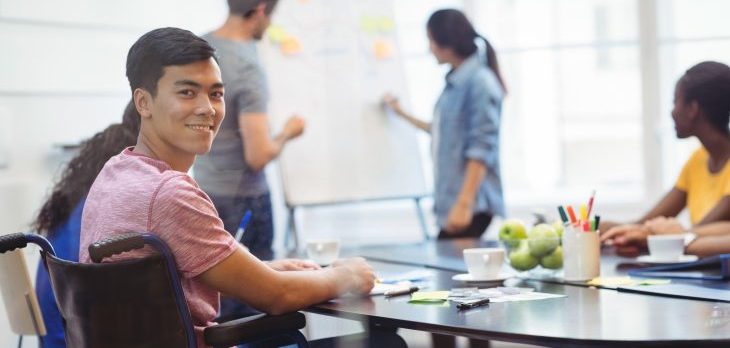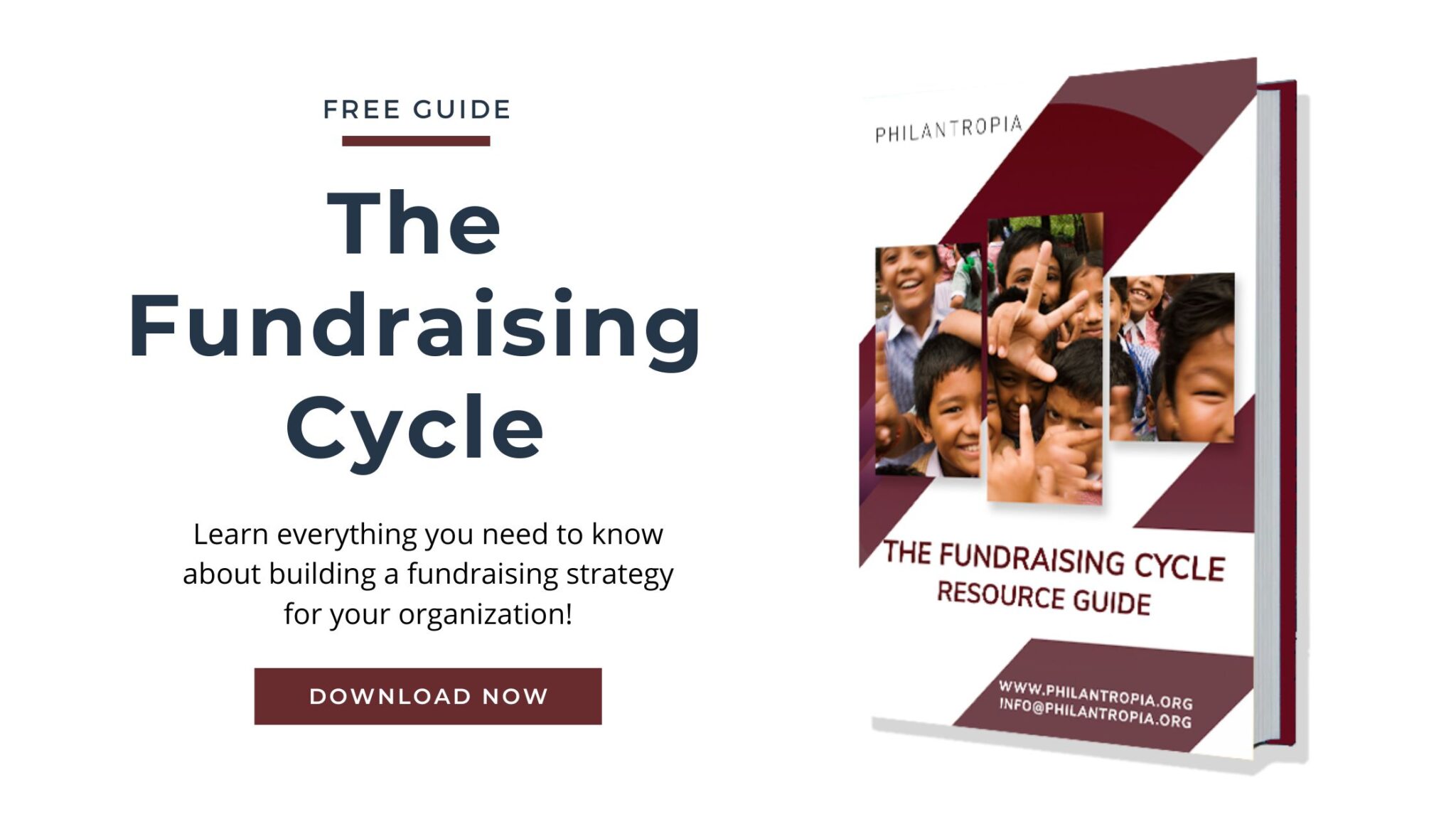December 3 is celebrated as the International Day of Disabled Persons. This day aims to promote the rights and well-being of persons with disabilities in all spheres of society and development. It is also an initiative to increase awareness of the situation of persons with disabilities in every aspect of political, social, economic and cultural life.
The 2030 Agenda pledges to “leave no one behind”.
On the occasion of the International Day of Disabled Persons, we want to give all the hard-working NGOs out there a basic guide for identifying grant programs, so that you can continue your great work.
Basic Guide on Disability Grants for NGOs
Step 1: Understanding your own NGO
The first step to donor research is understanding the need for your own NGO. This may seem very straightforward, but it is important to think about how your own experiences can help in donor research. You, therefore, need to ask yourself:
- What do I need funding for?
- What are the needs of my beneficiaries?
- How much do I need?
- What donors have my organization researched in the past?
- Does anyone in my organization’s network have connections with donors?
- Who has supported my organization in the past 5 years?
- Where are all past submitted funding applications?
Answers to these questions will not only help you get a better understanding of how to research prospective donors, but they will also help to estimate the capacity of the project your NGO can handle. NGOs are made up of people, and those people are not always on the same page. Large INGOs often struggle with this, but even smaller NGOs can face organizational challenges. Keeping track of your work, and checking your organization’s institutional memory is the key so that you are not starting from scratch every time you start a new round of grant cycle.
Step 2: Study your competition
Knowing what other NGOs are up to can be incredibly helpful. What types of projects are they running? How are they positioning themselves? What marketing techniques are they using? This information can help you better strategize your own donor research technique.
- Keep track of what other NGOs are doing – particularly those working in the same area as you.
- Keep tabs on field experts, important organizations, meetings, and conferences.
- Find who is funding your area.
- Make future partnership – Partnerships among NGOs is a great way to amplify your NGO’s reach and impact.
Step 3: Conduct Donor Prospect Research
Conducting donor research is a time-consuming but necessary process, and many grassroots NGOs are confused about where and how to find these prospects. Moreover, it is not always clear what donor research for grants actually entails. Yet donor research is essential in its provision of data that helps you spot the major channel prospects that will fund your project. It is, therefore, important to build these skills early and keep them within the organization. This phase includes online searches, networking, and sometimes even extensive baseline surveys and evaluations.
- Set up your fundraising goal– Before you even identify a list of the prospective donor, determine your fundraising goals. This will help you identify donors with the capacity to fund your project.
- Online research- Check the websites and annual reports of NGOs that are doing similar work to you. See if you can find their supporters and donors. Check databases and online directories of foundation like-DonorDatabase, Foundation Center, and others.
- Ask partners, colleagues, and current donors for suggestions.
- Make a Donor list– Identify the information that matters to you to target the best prospects and make a donor list. The list should highlight donors’ priorities. For example, location, issue or area of interest, grant range, consistency of funding opportunities, etc.
- Network and reach out to these donors – Now that you have created a list of donors that are a good fit for your NGO, start reaching out via email and phone/Skype. Do not send them a proposal at this point, rather, just focus on networking. Although many will not respond immediately, you should remain persistent and not let this discourage you.
Global funding for disability programs
Trends in Global Giving by US foundations show that $2.5 Billion (7.1%) grants were given to the NGOs working for the people with disabilities and the trend is growing with +44.4% from 2011 to 2015.
Top 10 Donors that Supports Disability Projects
Abilis empowers people with disabilities by helping them implement their own development projects. Alibis supports these endeavors through guidance in project implementation, as well as monitoring and evaluation efforts. Additionally, Abilis has a gender equality agenda expressed through the increased attention dedicated to girls and women with disabilities.
The Air France Foundation supports initiatives for long-term education and training projects targeted at children with disabilities, sickness or general difficult living conditions. Their focus lies with projects in the formal and informal learning sector, while also encouraging sport, culture and leisure facilities.
Amoria Bond Charitable Trust is a grant-making trust dedicated to supporting charitable organizations. They target those whose aim is to help people in poverty as a result of disability or socio-economic circumstances. Moreover, they provide access to care and education for those with physical or learning disabilities.
CBM is a Christian development organization. They dedicate themselves to helping people with disabilities in the world’s poorest regions by improving their conditions of life. Their focus lies in solving poverty, which they see as being both the cause and consequences of many disabilities. Through this, they hope to contribute to the formation of an inclusive society in which disabled populations are no longer marginalized.
Disability Right Fund’s goal is to change the preconception that disabled people require charitable help for their sustenance towards advocacy for their rights so that they can gain more independence. They do this from a participatory standpoint by including stakeholders, people with disabilities, in all levels of the organization, thereby, encouraging meaningful projects. Additionally, they only give grants to organizations with a similar participatory structure to ensure stakeholder presence.
The International Foundation of Applied Disability Research (FIRAH) is a foundation specifically dedicated to the support of disability research initiatives. These encompass field workers and operations as well as various organizations working in that domain and scientific researchers.
Handicap International is an aid organization concerned with the welfare of disabled people, specifically in conditions of poverty, exclusion, conflict, and disaster. They are dedicated to the improvement of living conditions and ensuring that their basic human rights are respected.
International Disability Alliance (IDA) supports capacity-building efforts for organizations dedicated to helping people with disabilities. They promote a more inclusive society, one in which people with disabilities are not discriminated against, and their basic human rights upheld.
Rehabilitation International (RI) is an organization hoping to improve the quality of life of people with disabilities. Their structure comprising stakeholders and people with disabilities ensures that the initiatives they support can have a meaningful impact on those in need. Their ‘Global Disability Development Fund’ aims to alleviate poverty and empower disabled people through rehabilitation and education.
The United Nations Voluntary Fund on Disability bases itself on the Convention on the Rights of People with Disabilities (CRPD). It aims at mainstreaming disability in the various scopes of development activities, be in regional, local, national or global. It, moreover, encourages capacity-building efforts for stakeholders to improve the conditions of life of people with disabilities in developing countries.




a lot of disability people serve our organisations help them to survive
Hii
How are you…??
I am Usama from Pakistan and I am disable person I want to learn more and more but I am not ables to afford university dues because I can’t physically work.
Can you help me please….??
Dear Usama:
Unfortunately, We are not a funding organization and do not provide grants. We are a social enterprise that provides a platform to connect you with expert advice on proposal writing to get your amazing projects funded.
Please check out the many resources available on our site to help you on creating a fundraising strategy.
Thank you!
Hello, l am Daniel kamau living in Kenya, l and my child John we living with different disabilities, mine l have physical disability and my child John have mental disability too according to doctor my child John having medicine daily basis until further notices morning he using Epilim 300gm and evening Epilim 500gm, please l struggled a lot since my business collapse off after my child John admitted in hospital Eight months, this issue collapse off my business until today I struggled a lot, looking for help to revive my business so that I can be able to help myself… Read more »